
Opening Thoughts
The Lantern Festival is approaching, and I'm already dreaming about that first bite of the soft, sweet tang yuan (glutinous rice balls)! To be honest, like many of my peers, I used to think of the Lantern Festival as just a simple holiday for eating and drinking. It wasn't until I made tang yuan with my grandmother that I truly understood the deeper meaning of this festival.
Every time I see friends posting pictures of their fancy takeout food on social media, I wonder if we've oversimplified many traditional festivals. Today, I'd like to share my thoughts with you about what life lessons lie behind this traditional festival that our generation should learn from.
The Way of Ingredients
When it comes to tang yuan, many people's first reaction might be "Oh, it's just glutinous rice flour mixed with water, wrapped around filling, and boiled." But let me tell you, there's so much more to it! I've made plenty of mistakes myself, and now I'd like to share my "lessons learned the hard way" and experiences.
I remember my first attempt at making tang yuan - it was a disaster. I saw discounted glutinous rice flour at the supermarket and thought, "Rice flour is rice flour, what's the difference?" That really taught me a lesson. The cooked tang yuan split open, the filling leaked out, and looking at that mess in the pot, I felt like crying. Later, I learned just how important the choice of rice flour is.
My grandmother told me that the best tang yuan are made with freshly ground glutinous rice flour, which creates a fine texture and better mouthfeel. She said that in the past, villagers would grow their own glutinous rice and have it ground at the mill before the festival. This freshly ground flour was not only fresh but also had uniform particle size, which made the tang yuan chewy and smooth.
When kneading the dough, water temperature is also crucial. There's actually a technique to it - you can't just use any water. Many people make the mistake of using water that's either too cold or too hot. After multiple experiments, I found that water around 35 degrees Celsius works best, creating dough that's neither too hard nor too soft.
This reminds me of something my grandmother often says: "Everything should be done in moderation, neither too much nor too little." Isn't this the "doctrine of the mean" that the ancients spoke of? In modern society, many people tend to go to extremes - they either don't do something at all or push it to the limit. But often, maintaining balance is the best choice.
When adding water to the flour, it should be done gradually, not all at once. Each time you add water, you need to knead thoroughly until the dough becomes smooth and elastic. While this process may seem simple, it requires great patience and focus. I think this is also a life lesson, teaching us that we can't rush anything - we need to take things one step at a time.

Cultural Codes
Behind the traditional customs of the Lantern Festival lie many profound life philosophies. Each seemingly simple custom might contain the crystallized wisdom of our ancestors.
Take lantern riddles, for instance - they're not just a simple game. Many people nowadays might think solving lantern riddles is "old-fashioned," but think about it - isn't it a way to train our thinking? Lantern riddles require us to look beyond literal meanings, connect context, and find hidden meanings. This way of thinking is very useful in many situations in modern society.
I remember once during a company creative meeting, the boss presented what seemed like an unsolvable problem. When I suddenly thought of the technique used in solving lantern riddles and tried to think from a different angle, I actually found a solution. This made me deeply realize that the wisdom of our ancestors continues to influence us.
Do you know why we eat round tang yuan during the Lantern Festival? There's deep cultural significance behind this. In Chinese culture, roundness symbolizes completeness and family reunion - it's a beautiful expectation. Young people today face heavy work pressure, and many work far from home with few chances to reunite with family. The Lantern Festival serves as a warm reminder to all those away from home, telling us not to forget to return.
Last year, I was working in another city and initially thought I'd skip going home for the Lantern Festival. But when I thought about the scene of the whole family making tang yuan together, I bought a ticket home. That night, as the whole family gathered to make tang yuan and chat, that warm feeling was truly indescribable.
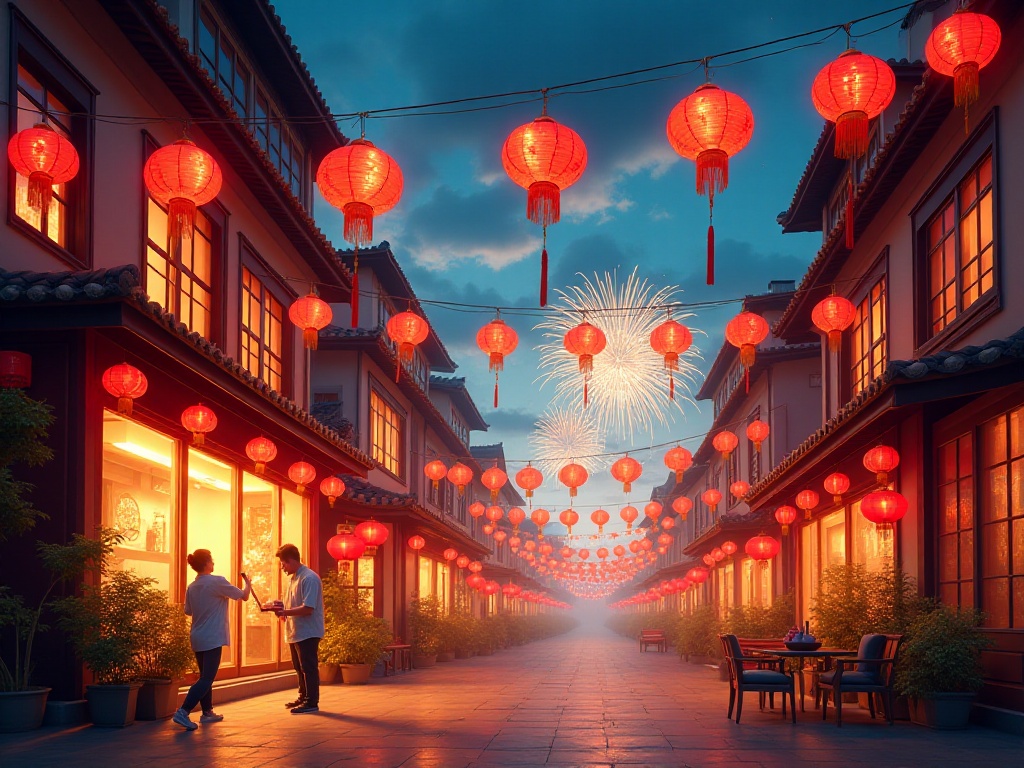
Modern Implications
In this fast-paced era, the ceremonial aspects of many traditional festivals are gradually fading. Young people today, including myself, are busy with work and social life, and might think of festivals as just another meal. But if we think carefully, aren't we missing something important?
When I first started working, I always thought time was money and wanted to make every minute productive. But later I realized this mindset was quite narrow. Life isn't just about efficiency - we need moments that allow our souls to settle.
Take making tang yuan for example. You can now buy instant tang yuan everywhere in supermarkets - they only take three minutes to cook, which is very convenient. But have you tried making tang yuan yourself? Kneading the dough, rolling it into balls, wrapping the filling - each step requires focus and patience. During this process, we not only experience the joy of handcrafting but, more importantly, find inner peace.
I have a friend who's an executive at a big company and is usually very busy. Last Lantern Festival, I invited her to my home to make tang yuan together. At first, she said it was a waste of time, but after actually doing it, she told me it was the most relaxing afternoon she'd had in a long time.
Many people now pursue so-called work efficiency but often neglect the quality of life. I think traditional festivals give us a good reminder: life needs some ceremony, needs moments where we can stop and feel life.
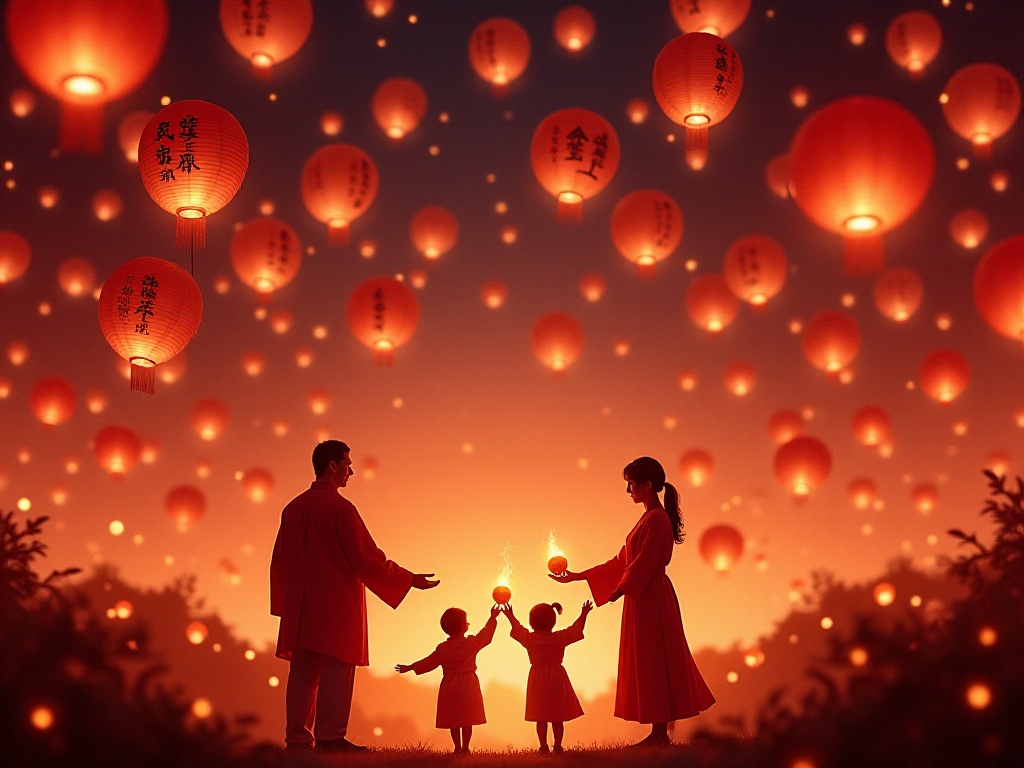
Practical Tips
After sharing all this, let me offer some tips on how to better preserve these traditional wisdoms in modern life. These are experiences I've gathered over the years, and I hope they'll be helpful to everyone.
First, about choosing tang yuan fillings. Many young people think traditional sesame and peanut fillings are too ordinary. Actually, we can innovate based on our own preferences. I've tried matcha filling, which turned out surprisingly delicious. Chocolate filling, though not traditional, has its own unique charm.
I think this kind of innovation actually reflects the inclusiveness of traditional culture. As my grandmother says, tradition isn't about staying unchanged but about evolving with the times. Any flavor is acceptable as long as we maintain that reverence for food.
If you really don't have time to make them yourself, buying pre-made tang yuan is fine. But here's an important suggestion: always choose products from reputable manufacturers. I've checked food safety reports, and products from well-known brands score much better on various testing indicators than those from small workshops.
There are also some tips for cooking tang yuan. Many people don't know that you should soak tang yuan in warm water before cooking to prevent them from splitting. Also, after the water boils, you should turn down the heat and cook them slowly - this makes them more smooth and tender.
Life moves fast now, and many people might not have time for complicated festival activities. But I suggest maintaining at least some basic ceremonial aspects. For instance, you could arrange a meal with friends or make a video call to family members who are far away. These seemingly simple actions actually preserve the meaning of the festival.

Conclusion and Future Outlook
Starting from a small tang yuan, we've seen the wisdom contained in traditional festivals. This wisdom isn't just reflected in food preparation techniques, but more importantly, in life attitudes and philosophy.
In this rapidly changing era, we need to find a balance between embracing modern conveniences and preserving the essence of traditional culture. Each festival is an opportunity, reminding us to pause our hurried steps and feel the beauty of life.
Finally, I want to say that the significance of traditional festivals isn't about how grand the ceremonies are, but whether we truly experience and pass on their meaning with our hearts. It's like a bridge connecting the past and present, and connecting us with our families.
I look forward to hearing your stories and insights at the next festival. Perhaps we can talk about the stories of Qingming Festival and see what insights that festival can bring us.
Next
Starting from a Tang Yuan: Do You Really Understand the Chinese Wisdom in the Lantern Festival?
Explore Chinese traditional festival customs and life wisdom, covering cultural activities, food traditions, and celebrations of Spring Festival, Dragon Boat Festival, Lantern Festival, and Mid-Autumn Festival, along with practical tips for improving life efficiency and home organization
Ten Years as a Working Professional: 14 Kitchen Storage Tips to Double Your Kitchen Space
A comprehensive guide exploring life hacks and festival customs, covering practical home organization tips, kitchen techniques, and traditional customs exemplified through Chinese New Year celebrations and cultural heritage practices
No More Kitchen Cleaning Struggles! These Practical Tips Will Make Your Kitchen Look Brand New
A comprehensive guide to practical life hacks and traditional festival customs, covering kitchen techniques, cleaning methods, clothing care, storage tips, and cultural practices of traditional festivals like Mid-Autumn Festival and Lantern Festival
Next
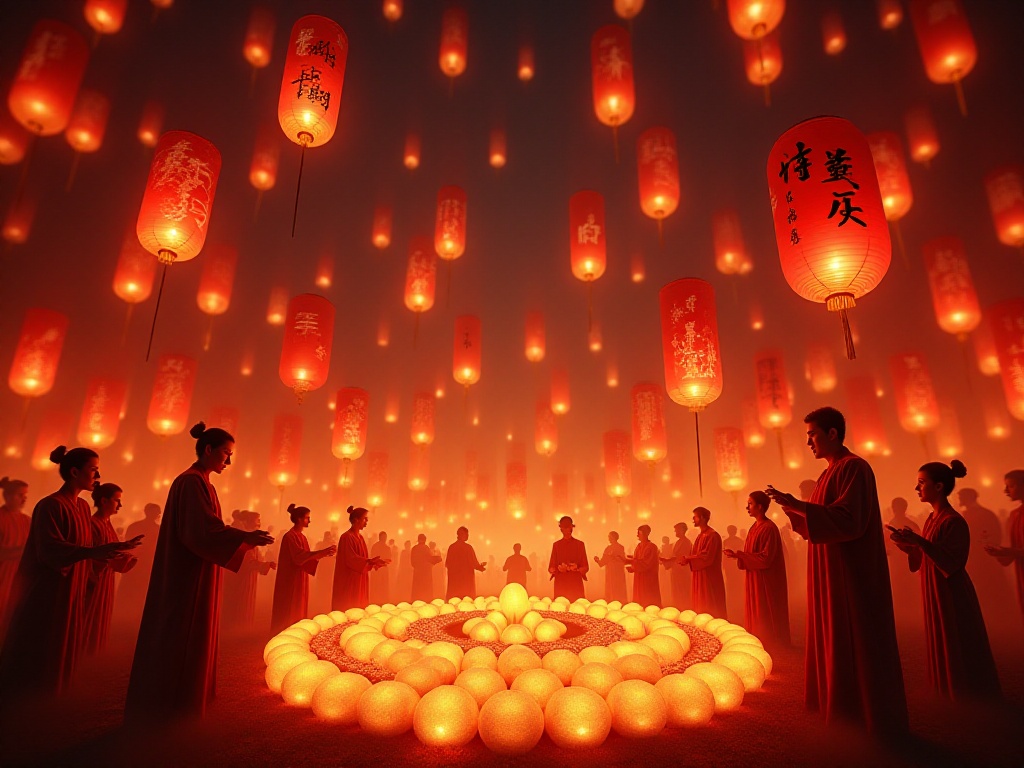
Starting from a Tang Yuan: Do You Really Understand the Chinese Wisdom in the Lantern Festival?
Explore Chinese traditional festival customs and life wisdom, covering cultural activities, food traditions, and celebrations of Spring Festival, Dragon Boat Festival, Lantern Festival, and Mid-Autumn Festival, along with practical tips for improving life efficiency and home organization
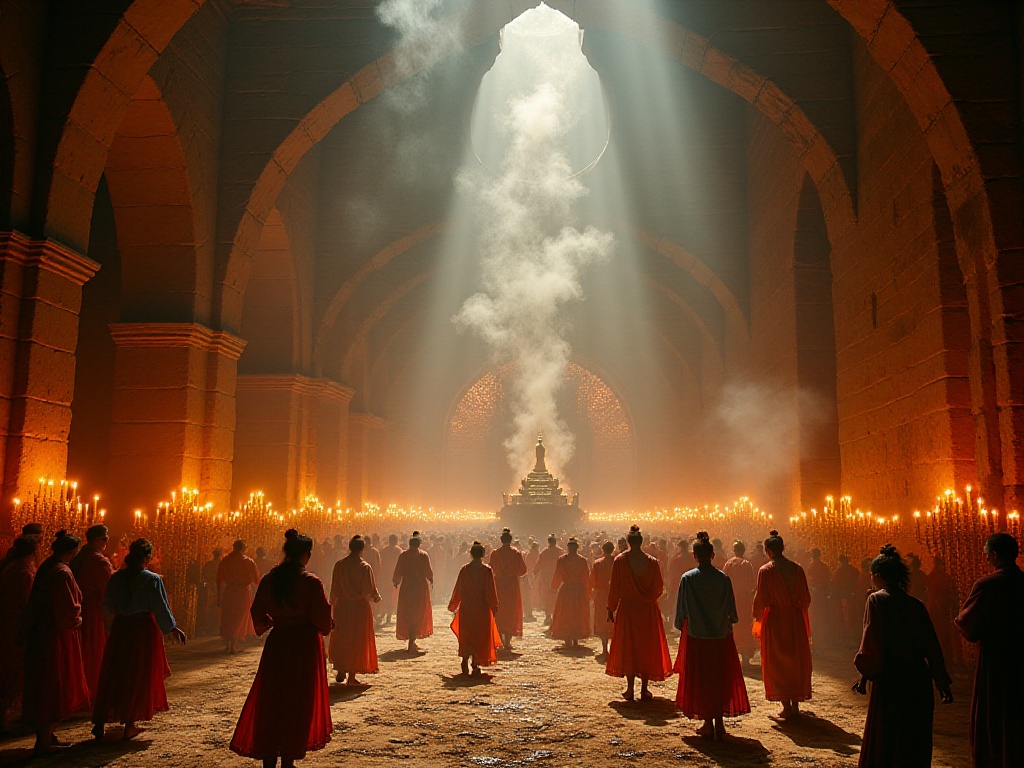
Ten Years as a Working Professional: 14 Kitchen Storage Tips to Double Your Kitchen Space
A comprehensive guide exploring life hacks and festival customs, covering practical home organization tips, kitchen techniques, and traditional customs exemplified through Chinese New Year celebrations and cultural heritage practices
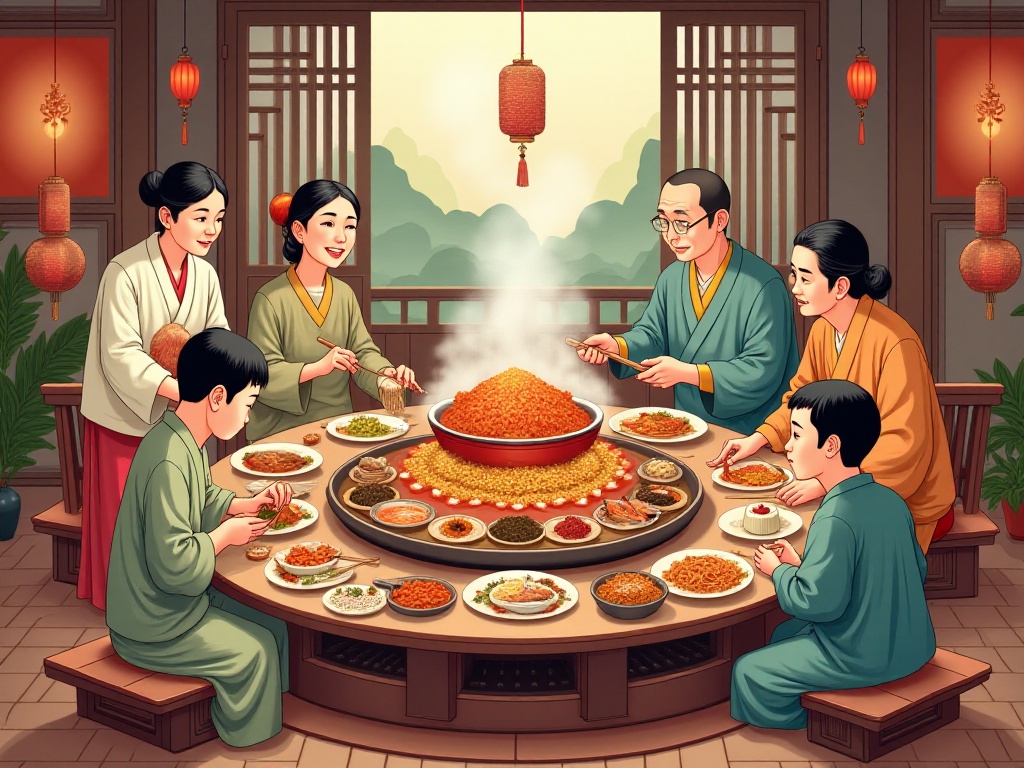
No More Kitchen Cleaning Struggles! These Practical Tips Will Make Your Kitchen Look Brand New
A comprehensive guide to practical life hacks and traditional festival customs, covering kitchen techniques, cleaning methods, clothing care, storage tips, and cultural practices of traditional festivals like Mid-Autumn Festival and Lantern Festival

